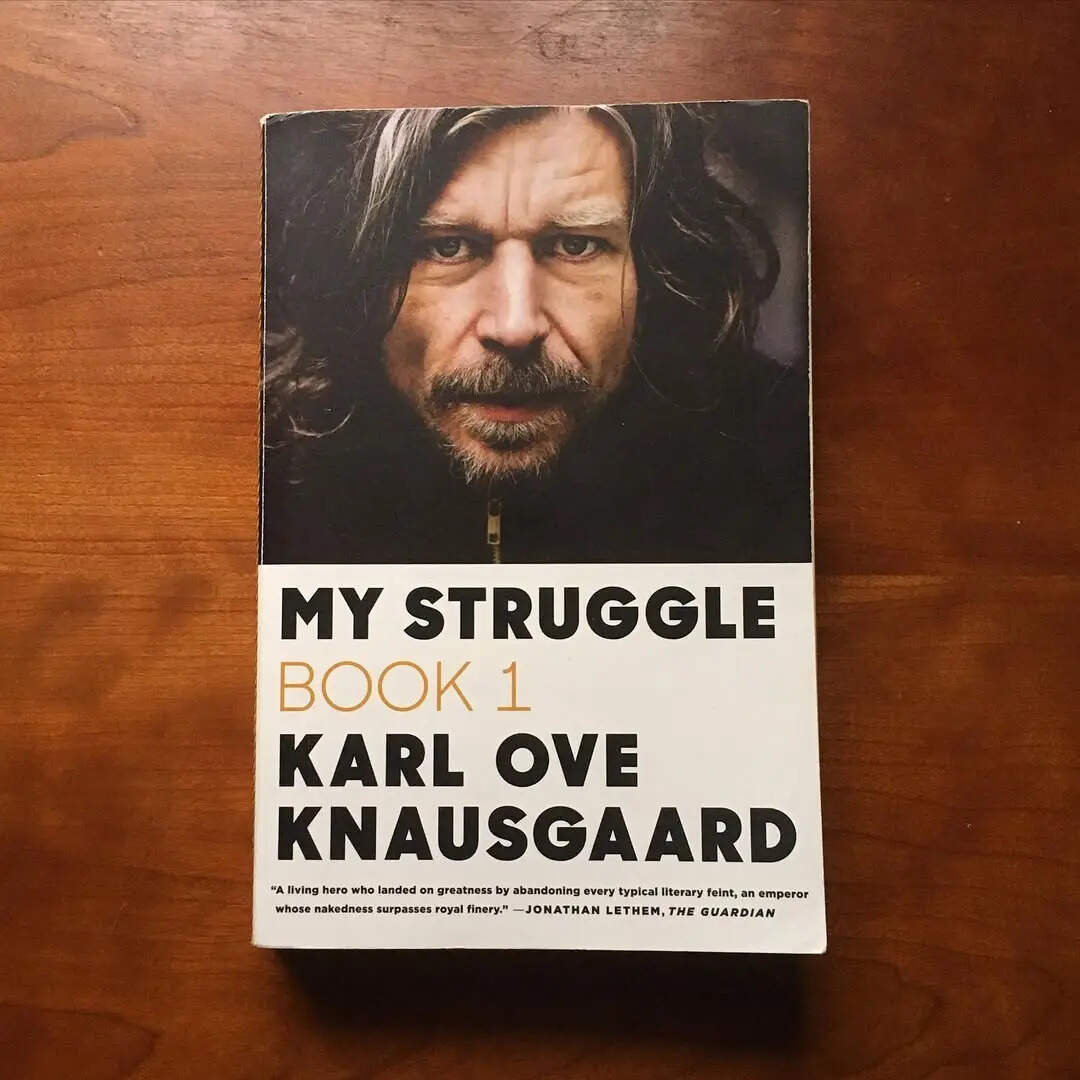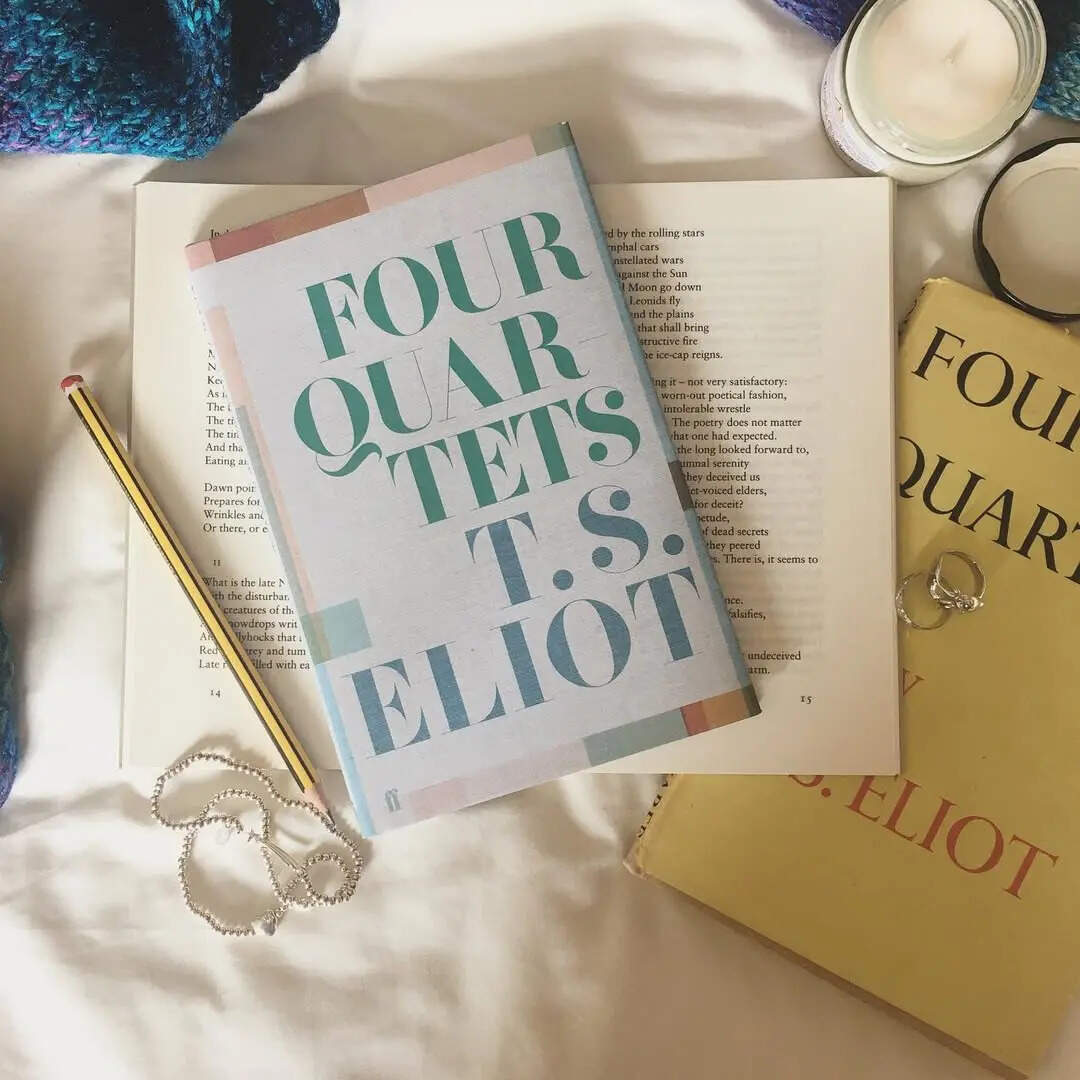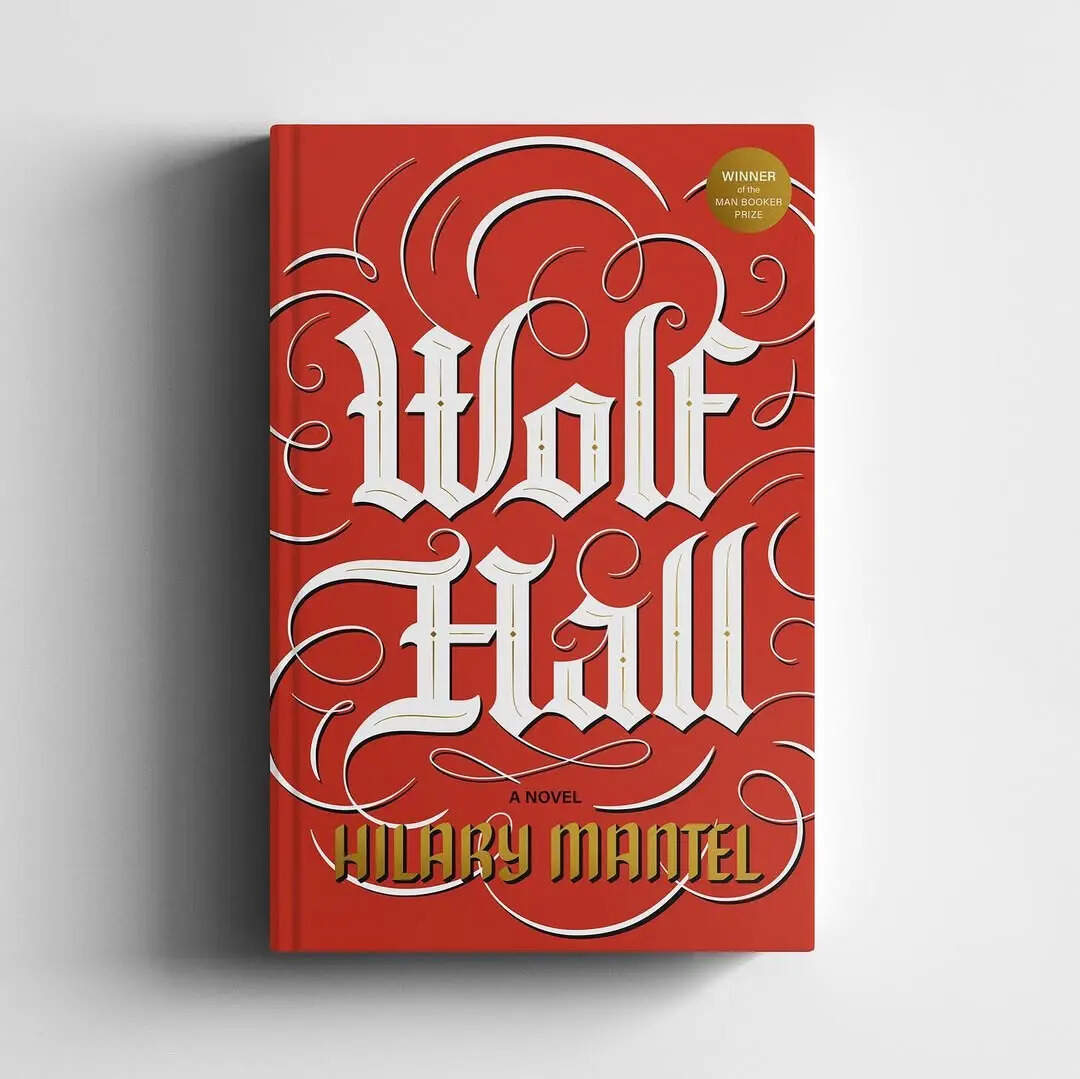
10 Books Recommended by Jeremy Strong (Picture Credit – Instagram)
Jeremy Strong’s screen presence is defined by quiet intensity, emotional precision, and a profound sense of stillness. The books that have influenced him echo these traits—rich in psychological insight, lyrical subtlety, and existential questioning. His reading list gravitates toward works that confront vulnerability, memory, and moral ambiguity. Whether fiction, memoir, or philosophy, each title reflects Strong’s enduring fascination with the inner lives of characters navigating change and complexity. These aren’t just literary preferences—they’re windows into the sensibility of an actor drawn to silence, introspection, and the hidden contours of human experience.
1. My Struggle by Karl Ove Knausgaard
This six-volume autobiographical saga is as raw as it is intimate. Knausgaard offers a relentless excavation of his life, stripping away privacy to probe masculinity, shame, and artistic obsession. Jeremy Strong finds deep resonance in its vulnerability and introspection. For a performer who builds characters from the inside out, Knausgaard’s confessional style is both revelatory and emotionally truthful. It becomes not just reading but experiencing another’s psyche with extraordinary intensity and depth.
 My Struggle (Picture Credit – Instagram)
My Struggle (Picture Credit – Instagram)
2. The Caretaker by Harold Pinter
Pinter’s sparse dialogue and charged silences have long intrigued actors. In ‘The Caretaker’ the shifting power dynamics between three men unfold in a room thick with implication. Strong admires the precision and restraint of the play, where what’s unsaid often cuts deeper than words. This tension, bubbling beneath each interaction, creates a space where psychological nuance reigns. For readers and performers alike, it’s a brilliant study of minimalism and the emotional landscapes it conceals.
Dostoyevsky’s landmark novel interrogates morality, guilt, and redemption with brutal honesty. Jeremy Strong turns to ‘Crime and Punishment’ for its raw existential urgency and the psychological torment of Raskolnikov. The character’s internal disintegration mirrors the ethical chaos of confronting one’s own nature. Strong sees the narrative here as a mirror to the soul, one that reflects pain, defiance, and ultimately the thirst for redemption. The novel becomes not only philosophical but profoundly emotional in its reckoning.
4. The Man Who Owns the News by Michael Wolff
Michael Wolff’s biography of Rupert Murdoch reads with the urgency of fiction while unravelling real-life ambition. Jeremy Strong, known for portraying complex media dynasties, draws from this book’s intimate look at power and its discontents. Wolff captures a man whose influence shapes global narratives, and in doing so, reveals the machinery behind empire-building. For Strong, it serves as a compelling lens on control, ambition, and the costs of dominance in a fractured media landscape.
5. Four Quartets by T.S. Eliot
Eliot’s lyrical meditation on time, memory, and spiritual inquiry speaks to those craving stillness amid chaos. Jeremy Strong finds in ‘Four Quartets’ a rhythmic balance to modern life’s dissonance. Its cadences offer space to breathe, to pause, and to reflect. The poem’s cyclical nature and philosophical undercurrents align with Strong’s pursuit of depth, mirroring his instinct to search within characters for their essence. It’s not just literature—it’s emotional and metaphysical architecture.
 Four Quartets (Picture Credit – Instagram)
Four Quartets (Picture Credit – Instagram)
6. In Search of Lost Time by Marcel Proust
Proust’s monumental work invites readers into the quiet revolution of memory. ‘In Search of Lost Time’ demands not speed but surrender. Jeremy Strong is captivated by its delicacy and the slow blooming of thought and recollection. Proust renders the ordinary extraordinary, transforming fleeting sensations into profound truths. Strong sees in this work a mirror to acting—where observation, pause, and emotional layering create meaning beyond the visible. It’s a masterclass in living through the written word.
7. Letters to a Young Poet by Rainer Maria Rilke
Rilke’s intimate letters offer guidance to artists confronting solitude and self-doubt. Jeremy Strong values the way Rilke frames the inner life as the true arena of artistry. These letters don’t prescribe a method but illuminate a path. Patience, depth, and listening inward become virtues. For Strong, who builds performances from silence and shadow, this book is less advice than affirmation—a gentle reminder that art begins not with noise but with stillness and self-trust.
8. The Diaries of Alma Mahler by Alma Mahler
Alma Mahler’s journals pulse with the energy of a woman who lived amid brilliance and heartbreak. Jeremy Strong is drawn to her unfiltered voice—a woman both muse and artist in her own right. The diaries chronicle emotional intensity, creative partnerships, and complex self-awareness. Through Alma’s lens, we witness history’s great composers and writers in their private turmoil. For Strong, these pages offer not nostalgia, but raw human texture across art, power, and vulnerability.
Mantel’s reimagining of Tudor politics through Thomas Cromwell is cerebral and cinematic. Jeremy Strong admires the psychological complexity Mantel affords her characters, particularly Cromwell’s evolving conscience. Each scene is constructed with precision, layering ambition with introspection. For Strong, the novel reads like a script embedded with quiet tension. Its brilliance lies in how power shifts through language and gaze, not spectacle. It’s a portrait of control, vulnerability, and survival played on history’s grandest stage. Wolf Hall (Picture Credit – Instagram)
Wolf Hall (Picture Credit – Instagram)
10. Angle of Repose by Wallace Stegner
Stegner’s Pulitzer-winning novel intertwines generations, chronicling legacy and the fragile hope of understanding the past. Jeremy Strong finds richness in its layered narration and emotional restraint. The novel explores how history becomes personal, filtered through memory and regret. Through the voices of pioneers and descendants, it captures the tension between motion and stillness, ambition and compromise. For Strong, it resonates as a meditation on reconciliation—how art, like life, can seek peace without easy resolutions, embracing complexity rather than clarity, and allowing silence to carry as much meaning as words ever could.
Jeremy Strong’s bookshelf reveals a quiet intensity, filled with titles that speak to introspection, ethical complexity, and lyrical precision. His literary taste leans toward works that reward patience—memoirs that ache with honesty, novels that wrestle with the human condition, and essays that observe rather than declare. Each recommendation reflects an actor drawn to nuance, solitude, and the inner lives of others. Strong’s reading habits suggest an artist more attuned to the power of quiet revelations than loud proclamations, always seeking substance beneath the surface.